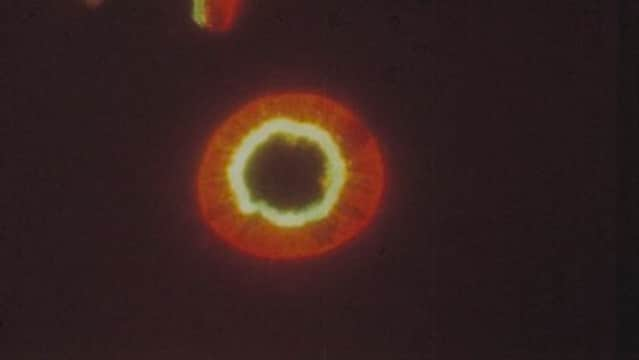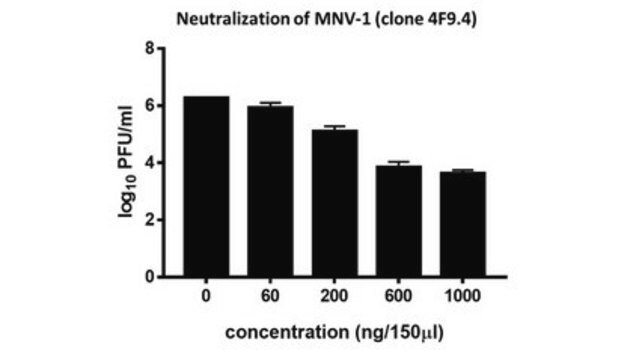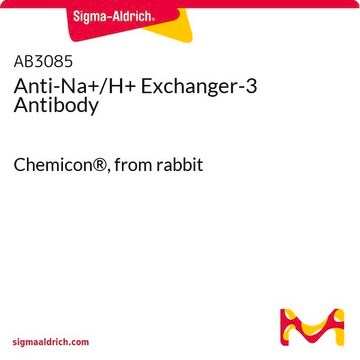MABN2415
Anti-phospho-NHE3 (Ser552) Antibody, clone 14D5
clone 14D5, from mouse
Synonyme(s) :
Sodium/hydrogen exchanger 3, Na(+)/H(+) exchanger 3, Solute carrier family 9 member 3, NHE-3
About This Item
Produits recommandés
Source biologique
mouse
Niveau de qualité
Forme d'anticorps
purified immunoglobulin
Type de produit anticorps
primary antibodies
Clone
14D5, monoclonal
Espèces réactives
rat, opossum, bovine, mouse, human
Technique(s)
ELISA: suitable
immunofluorescence: suitable
western blot: suitable
Isotype
IgG2aκ
Numéro d'accès NCBI
Numéro d'accès UniProt
Conditions d'expédition
ambient
Modification post-traductionnelle de la cible
phosphorylation (pSer552)
Informations sur le gène
rat ... Slc9A3(24784)
Description générale
Spécificité
Immunogène
Application
Western Blotting Analysis: A representative lot detected phospho-NHE3 (Ser552) in Western Blotting applications (Kocinsky, H.S., et. al. (2005). Am J Physiol Renal Physiol. 289(2):F249-58; Kocinsky, H.S., et. al. (2007). Am J Physiol Renal Physiol. 293(1):F212-8).
ELISA Analysis: A representative lot detected phospho-NHE3 (Ser552) in ELISA applications (Kocinsky, H.S., et. al. (2005). Am J Physiol Renal Physiol. 289(2):F249-58).
Neuroscience
Qualité
Western Blotting Analysis: 2 µg/mL of this antibody detected Sodium/hydrogen exchanger 3 in lysate from COS-7 cells transfected with wild- type NHE-3 (pSer552). It did not detect NHE-3 in lysate from untransfected COS-7 cells or those transfected with mutated NHE-3 (S552A).
Description de la cible
Forme physique
Stockage et stabilité
Autres remarques
Clause de non-responsabilité
Vous ne trouvez pas le bon produit ?
Essayez notre Outil de sélection de produits.
Code de la classe de stockage
12 - Non Combustible Liquids
Classe de danger pour l'eau (WGK)
WGK 1
Point d'éclair (°F)
does not flash
Point d'éclair (°C)
does not flash
Certificats d'analyse (COA)
Recherchez un Certificats d'analyse (COA) en saisissant le numéro de lot du produit. Les numéros de lot figurent sur l'étiquette du produit après les mots "Lot" ou "Batch".
Déjà en possession de ce produit ?
Retrouvez la documentation relative aux produits que vous avez récemment achetés dans la Bibliothèque de documents.
Notre équipe de scientifiques dispose d'une expérience dans tous les secteurs de la recherche, notamment en sciences de la vie, science des matériaux, synthèse chimique, chromatographie, analyse et dans de nombreux autres domaines..
Contacter notre Service technique






